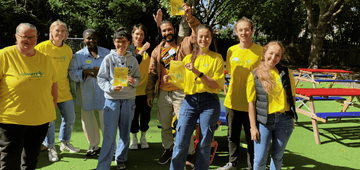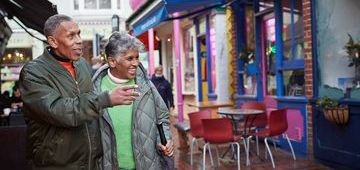
It’s almost impossible to turn on the news, social media or have conversations with your friends and families without being confronted by the impacts of inflation. What for the last decade or so, has been affecting the poorest in our society, is now reality for the average household as a toxic mix of increasing prices, debt and wage stagnation takes hold. A range of recent reports show the impact of the cost-of-living crisis and how it is impacting in the short term.
However, it’s not just the short-term choices of heating and eating we should be worried about but the longer-term impacts of people falling into poverty. Hearing the harrowing stories of people skipping meals to get through the week will soon be accompanied by stories of people choosing to be cold in their homes this winter as the cold weather starts to bite, with the NHS Confederation likening the months ahead of us as an impending humanitarian crisis. These are the obvious and visual impacts of the cost-of-living crisis but if we look even a little further down the line, we can see that ballooning inflation rates, price rises, rent increases, wage reductions and debt needing to be repaid means that people will stop spending money and slip into poverty. This is particularly damaging as the very people employed in lower-paid jobs reliant on consumer behaviour are those already closest to the poverty line.
Once you are in poverty it's incredibly hard to get out of it. A recent report by The Trussell Trust highlighted that against a backdrop of astronomical inflation, social security payments have had their biggest fall in real-term value for at least 30 years. Since the cuts to Universal Credit last Autumn alone, 40% of the 5.7 million people who receive this financial support have slipped into debt, and as is well established, the cycle of borrowing and repayment is hard to escape from.
Whilst we are all feeling the pinch, the cost-of-living crisis will be disproportionately felt by those in poverty, as they have the least disposable income and fixed essential bills (food, energy) make up a higher percentage of their household outgoings. This means that the inflation rate experienced by people living in poverty is higher than the national average, something the Office for National Statistics are working to address in their regular reporting. In turn, the cost-of-living crisis will therefore negatively affect the health of the poorest the most and will increase health inequalities. Many studies have shown that living in poverty means that you are more likely to have a shorter healthy life expectancy, experience mental ill health and face reduced life chances. We also see those experiencing inequalities and living in poverty are more likely to struggle to access the care and support they need.
At RSPH we see the cost-of-living crisis as an acute symptom of a chronic problem. That isn’t to say there isn’t much that can be done right now and the recent calls on governments to do more to help those most in need are welcomed, but we also see a role for business, communities, and statutory bodies to do all they can to help. There are great examples of places, people and organisations creatively looking at ways to address the problems we now face and find long-term solutions.
Brighton and Hove council, for instance, recently launched an innovative energy rebate donation scheme. Council residents who don’t need the blanket £150 energy rebate can choose to donate it to a relief fund run by the council and Citizens Advice. The monies raised via the fund are being distributed by the Council in the form of utilities vouchers and food parcels to local households most in need, which is helping to redress both financial and health inequality.
Commercial companies, many of which are facing the same cost-of-living challenges as households, have also begun to think outside the box too. For example, some employers are now giving shift workers instant access to earned pay to aid cash flow and others are offering annual-leave buy-back schemes. While these solutions may seem small and imperfect in isolation, when everyone takes responsibility and steps in to do their bit, collective action really can make positive change happen.
Inequalities really matter. More equal and fair societies are stronger and healthier societies. We believe that good public health is everyone’s responsibility and that’s why we want to hear from our members, our partners and those who are looking to tackle the cost-of-living crisis. We want to bring people together to talk about the things we can do, not just now but longer term to ensure that the long-term impacts of the cost-of-living crisis aren’t felt for the next 20-30 years.



